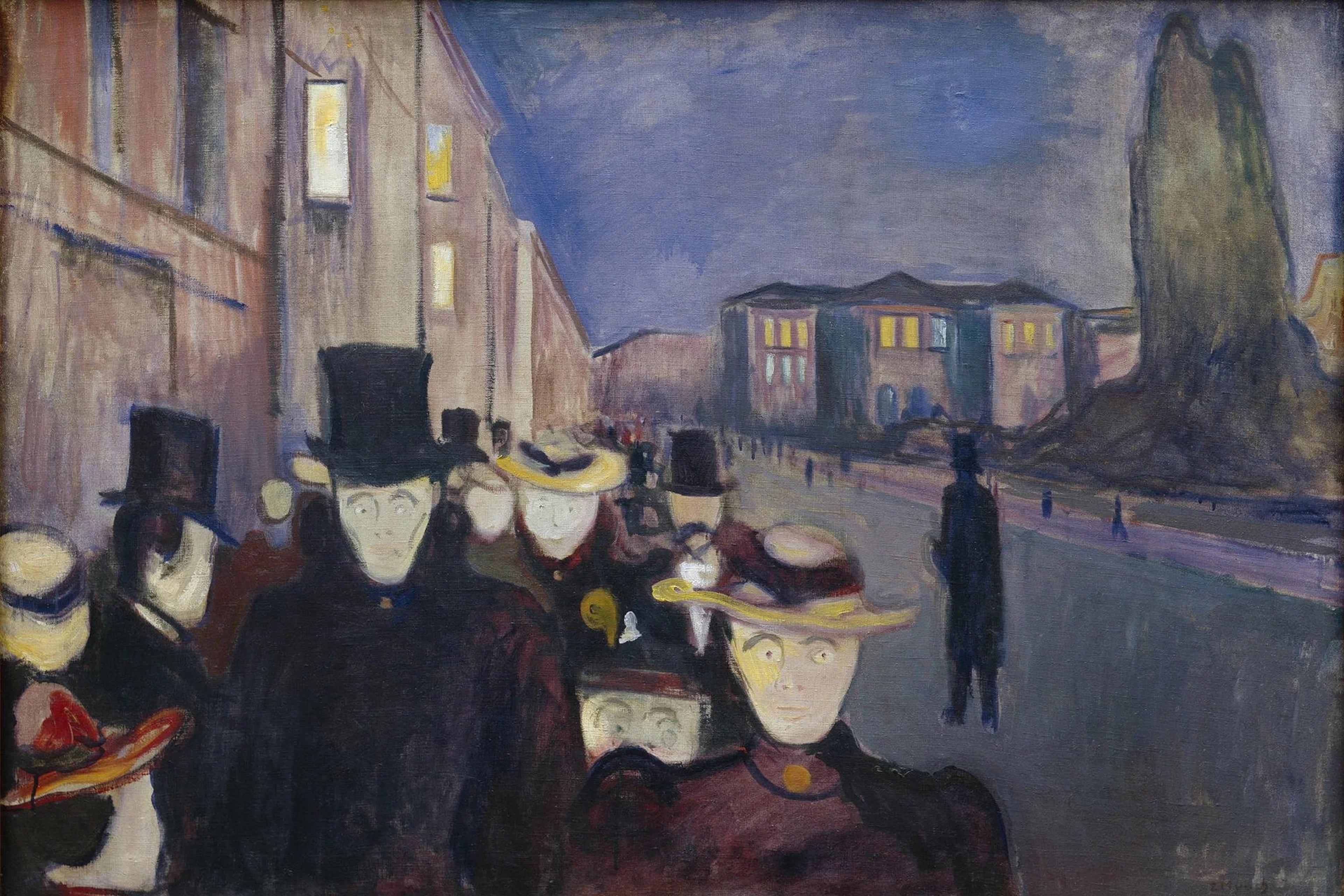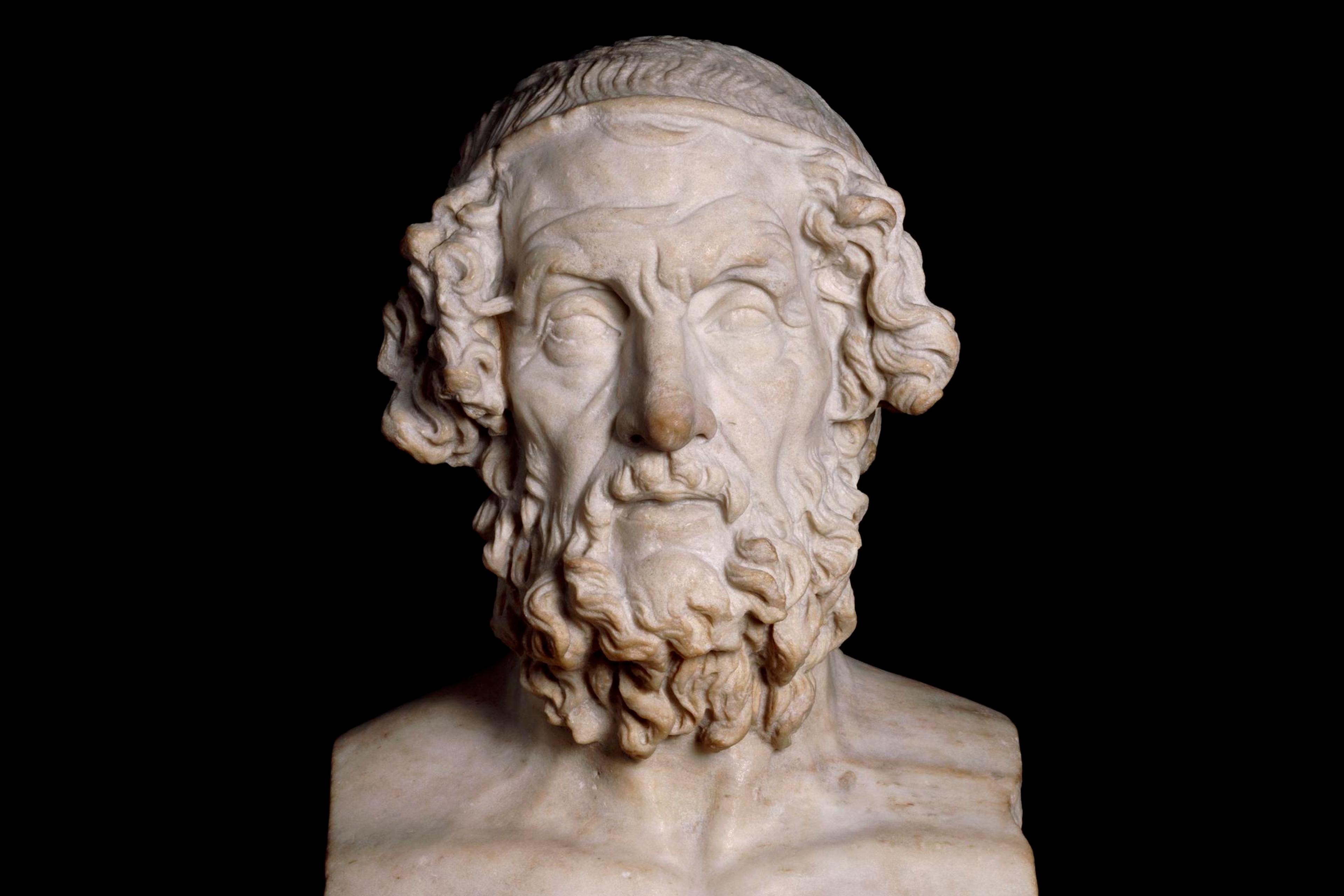Nathan Harshman: Quantum mechanics tells us that within materialism – the idea that nothing exists except matter and its movements – there are uncertainties that do not derive from our ignorance but are fundamental to matter and the laws that govern it. In this view, uncertainty is an uneradicable feature of our physical world.
This can be heady stuff for undergraduates. Many of them have received the message that science is synonymous with materialism, and materialism is synonymous with certainty. Recognising that uncertainty is an essential feature of the Universe leaves them flummoxed, but one semester I had at least one student who really got it, really engaged with the ideas and reading. However, he was a 50-year-old literature professor taking the course for no credit.
Richard C Sha: Nate kept us wondering about the relation between properties of matter and certainty, and the degree to which a quantum understanding of the world could inject subjectivity and uncertainty.
I am a Kantian, and, as such, I don’t question whether things exist. Immanuel Kant didn’t either! I question the degree to which things can be known, and also the degree to which we can say more about things than how they appear to us. In the Kantian view, things will never be extricated from uncertainty because we never perceive things in themselves. We perceive things through our perceptual systems. Appearance for Kant, then, does not deny the existence of the thing.
NH: Most scientists I meet are hardcore materialists. The ancient Greek philosopher Democritus spoke the gospel: ‘By convention sweet is sweet, bitter is bitter, hot is hot, cold is cold, colour is colour; but in truth there are only atoms and the void.’ But because of the way we teach science, people often have a misrepresentation of the atomic world. For example, we celebrate Richard Feynman’s atomic hypothesis: ‘all things are made of atoms – little particles that move around in perpetual motion, attracting each other when they are a little distance apart, but repelling upon being squeezed into one another.’ This hypothesis oversimplifies atoms into tennis balls, and quantum uncertainties thereby remain tucked under the rug, but it has broad explanatory power for physics, chemistry, biology and everything else.
In contrast to the atomic hypothesis, Richard [Sha] offered the deconstructionist response: ‘Ontology is ideology.’ This slogan asserts that the reality of the world (ontology) is too complex, immense and slippery for mere language. Therefore, any metaphysical claims, including scientific claims, about what is ‘really real’ are necessarily ‘just ideas’. This ontological denialism makes the heads of metaphysical materialists, such as most scientists, explode.
RCS: So, for me, the Higgs boson was a revelation, and not in the sense of a ‘God particle’ as it became popularly known. First, Peter Higgs hypothesised the existence of such a field more than 20 years before any empirical evidence of it could be delivered. It had first to be imagined. Second, if matter acquires its massness through this Higgs boson, then matter is a dynamic entity, an interaction. A process; not a thing! Albert Einstein’s E=mc2 foretold that matter was a form of energy, but what allowed matter to take form, and why is this seemingly simple and basic idea so difficult to grasp? Why did Michael Faraday, who invented the electric generator, change his mind about a magnetic field: moving the field from a theoretical concept to an actual thing? Once he made that shift, how could he prove its thingness? He did so by showing it had duration over time. What happened when one had to imagine how to prove existence?
NH: Our collaboration on uncertainty began when Richard emailed me about the confirmation of the Higgs boson. Physicists had hypothesised the Higgs boson as a mechanism in the so-called Standard Model by which the particle quanta of the fundamental fields acquire their mass. Electrons and quarks, the particles of matter, gain their mass this way. In contrast, the particle quanta of light do not interact with the Higgs boson, and remain massless carriers of electromagnetism. This notion that the flickering excitations of quantum field theory give mass to matter belies the static and certain notion of materialism employed by literary critics, and caught Richard’s attention.
RCS: So, what does any of this have to do with literature? Literary scholars like Jerome McGann and Clifford Siskin had been subjecting human imagination to relentless critique: scorning it as escapism, a complete denial of realities like the Industrial and French revolutions. But if matter had to be imagined, and if Faraday had to imagine how to prove the magnetic field to be a thing, then both imagination and matter were filled with far more uncertainty than today’s critics imagine. The positioning of matter on one end and the escapist imagination on the other was a conviction of current critics, not of writers then. The Higgs boson showed that the configuration of matter had first to be imagined well before it could be proved. The poet and artist William Blake, who illustrated scientific and medical books, was right when he claimed ‘What is now proved was once only imagin’d.’ His point was that proof was belated and a much smaller set of things than what the imagination creates.
NH: Underneath my commitment to materialism, I am concerned about the overreach of science and the proliferation of scientism, a belief that the scientific method produces the only useful knowledge, and an overestimation of the objectivity and determinism possible within complex systems. Quantum theory reveals that matter carries an uncertainty that undermines the naive determinism that both opponents and adherents of materialism sometimes claim. I am a ‘third-wave’ quantum theorist, accustomed to inherent uncertainty and indeterminacy of entanglement, contextuality, and other forms of quantum weirdness. I see these as tools, not opponents, and accept that quantum mechanics forces a blurry line between epistemology and ontology, between subject and object, and hence uncertainty is again unavoidable. I came of age after chaos theory and complexity theory and cybernetics and Turing incompleteness and Gödel incompleteness. I know that even deterministic physical systems and deductive logical systems can be practically unpredictable, causally ambiguous, and generally unintelligible and uninterpretable.
Somehow, to my frustration, this wave of inevitable uncertainty within materialism seems to have washed over many scientists, most social scientists, and a public hungry for certain truths in uncertain times. Instead, they cling to their scientism, with its idols of naive determinism and overestimated objectivity of data.
RCS: I share Nate’s commitments to materialism and uncertainty: both of which are in keeping with Kantianism. Those commitments become more intense when coupled with an understanding of why certainty can be so toxic. Let me explain.
Psychologists like Arie Kruglanski suggest that uncertainty is at the root of a lot of bad behaviour: authoritarianism, the intolerance of ambiguity, and dogmatism. Today’s huge levels of uncertainty – climate change, inflation, the nigh-impossibility of shared societal goals, the rampant polarisation making political moderation very difficult – have truly brought out the very worst in us. Yet if uncertainty is a feature of the world, and not just a story about the limits of human knowing, then we’d better find better ways to come to grips with it. Understanding uncertainty as an ineradicable feature of the world, as many physicists do, makes uncertainty not our fault and not just a problem about human knowing. Why should we continue to be threatened by uncertainty when there is no way of getting around it?
NH: In the history of science, the threat of uncertainty has manifested itself as demons. Scientists invented demons as tools of systematic doubt to embody the possible contradictions contained within a model of reality. In 1641, René Descartes introduced an evil demon as a sceptical foil; this demon simulates perception and deceives the mind into believing the world is real. In 1867, James Clerk Maxwell, the physicist who unified electricity and magnetism, imagined a demon with nimble fingers that sorts slow and fast molecules in an attempt to sabotage the second law of thermodynamics. Schrödinger’s famous cat is less malevolent, but still a kind of demon thought-experiment meant to show the precarious relationship between subject and object in the interpretation of quantum mechanics.
For me, the most threatening demon was invented by the French mathematician and physicist Pierre-Simon Laplace to explain the seemingly unlimited power contained in Newtonian mechanics. In 1814, he imagined a vast intellect capable of knowing all particles and the forces among them, and claimed that ‘for such an intellect nothing would be uncertain and the future just like the past would be present before its eyes.’ This demon promises a predictable and ordered universe completely at odds with what quantum mechanics, complexity and chaos have taught us. Its false certainty disables effective ethical reasoning by encouraging the belief that, with sufficient information and the right calculations, there are no ethical choices to make, since, returning to Laplace, the mathematics will tell us what to do.
I suspect this demon lurks behind authoritarians and provokes reactionaries of all ideologies. Public reaction to recent existential crises of uncertainty has included an anti-science flavour that can be traced back to scientism and the demonic fetishisation of certainty. We need to expose this monster and the damage it does by overpromising the consequences of materialism and science.
For help in this exorcism, I turned to a literary scholar.
RCS: Why does uncertainty get such a bad rap anyway? Without uncertainty, one never makes a true decision, one is merely compelled in one direction or another. Existentialists since Søren Kierkegaard insist that uncertainty lies at the heart of freedom. Far from being something to shun, uncertainty makes real decisions and therefore real creativity possible. In short, uncertainty enables our very humanity.
Without uncertainty, possibility itself is not possible. The poet Emily Dickinson called possibility a ‘fairer house’ than the predictability of prose. If we experience uncertainty as the necessary architecture of the world, and not just as our own mental furniture in disarray, then we need not blame ourselves for the negative feelings that uncertainty engenders. Uncertainty, and the choices it necessitates, is precisely what prevents our humanity from being inevitable and therefore reproducible by machines. Instead of trying to produce certainty at any cost, we can celebrate the freedom and creativity that comes from uncertainty, and thus, with Dickinson, escape an otherwise prosaic and robotic life.








